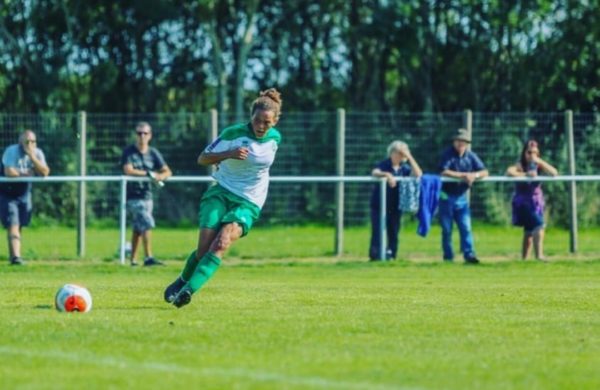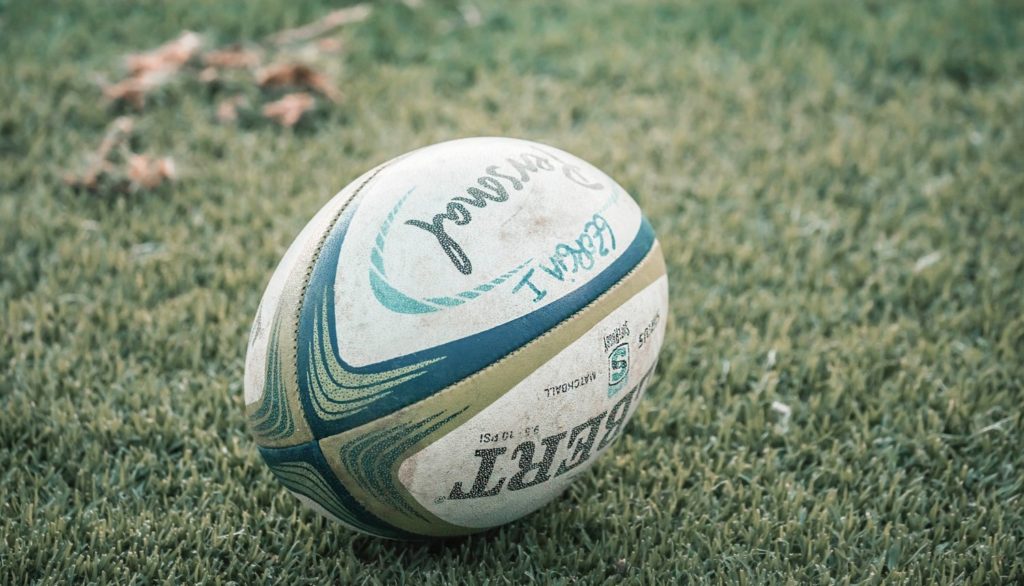
From minority player to coach and role model
Jane talks about being a minority in football.
Date: 17 June 2021 Author: Energise Me
A’s own experiences with mental health, injury and resilience have helped shape him into the coach he is today. He works to coach the person, not the player, hoping that all his players can become the best versions of themselves.

As a child, I was quite active. Activity was an important part of both my parents’ lives so I grew up with it always around me. However, I didn’t get into rugby until I was a teen. My uncle played and I knew about the sport, but I was never that into it. It was more athletics with my parents and my school was a “football school” so they wouldn’t let us start a team.
With my parents both having busy jobs, it was always hard for me to be able to go to clubs after school. But once I got to college, I started studying leisure and recreation and explored sport a little more.
From here I went on to university and that’s where I got really into rugby. I played well and even managed to play abroad. This kickstarted my career into coaching and playing.
From a young age, I have struggled with my mental health. The starting point for me was when I had to have my appendix out and was off school for two weeks. My friends ignored me and as a child, this changed my perspective and sent me into a pit of negative feelings. I found new friends and they still support me to this day.
Anger has always been an issue for me. It would always be my emotional response and as I got older it became an issue. I didn’t learn how to control it and when something went wrong or I upset someone, I would take it out on myself.
In the end, I had to leave uni twice due to my mental health. I wasn’t in control of my life. It wasn’t until I travelled on my own that I learnt I am a lot stronger than I thought. When you’re travelling like that you have no choice but to get on and make new friends.
I was ok for a while but then life happens. People died or something went wrong and I would be back to square one. I was a typical man though, not telling anyone and trying to get through it on my own.
Playing rugby helped. It took away my anger by giving me a way to focus it.
Playing rugby helped. It took away my anger by giving me a way to focus it. I’m not saying that tackling people is the best way to do it but it’s a controlled game and I could just get on with it. Going to the gym was also a good way for me to get it out. I found I could build muscle quickly and I enjoyed it.
Hitting bigger weights gave me huge satisfaction and I knew I could handle anything. At the time I worked in a pub. I didn’t get stressed out when it was busy as I knew I could easily shift barrels and stuff.
Nowadays I would get totally stressed out. I had an injury playing and I have lost all confidence going to the gym. I am also unable to do certain things. This hasn’t helped my mental health.
So, a few years ago I decided enough was enough and went to my doctor and got help. Although a lot of that help has been in lockdown, I am trying to sort myself out. I have been talking to iTalk and luckily have some great friends around me.
Although I am unable to currently play rugby, the sport helps me. I see it as a good thing, me coaching but not playing. I can share my passion and ensure others don’t injure themselves like I did.
I know not all my players will go on to be professionals, but I want them to succeed in whatever they do. I try to encourage them to get good grades, feel good about themselves and be good people.
I try to be a player-centred coach. I care about the players and the parents. They are the stakeholders so I need to do the best I can for them. Ex England Captain, Chris Robshaw always says you have to do that 1% extra to be a good coach or player so I try to do a little bit extra.
I try to focus on player behaviour. Rather than planning to succeed, we focus on adapting to failure and how we overcome it. What drives me is the ability of rugby to change people’s mindset. If you guide them on the right path it becomes the way. I don’t want players to have the worry of the injury I had so I make sure they warm up properly. By the end of the season, my players were turning up early to warm up off their own back.
You might look at a pitch and see two teams fighting to win but I try to see beyond that. To think about what might be going on in the players’ heads as they are people with feelings.
I know not all my players will go on to be professionals, but I want them to succeed in whatever they do. I try to encourage them to get good grades, feel good about themselves and be good people.